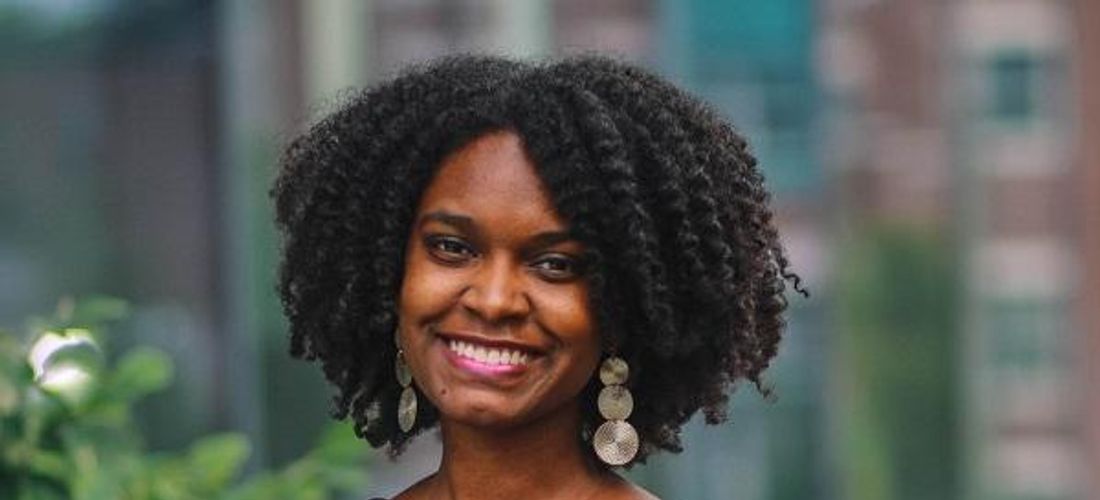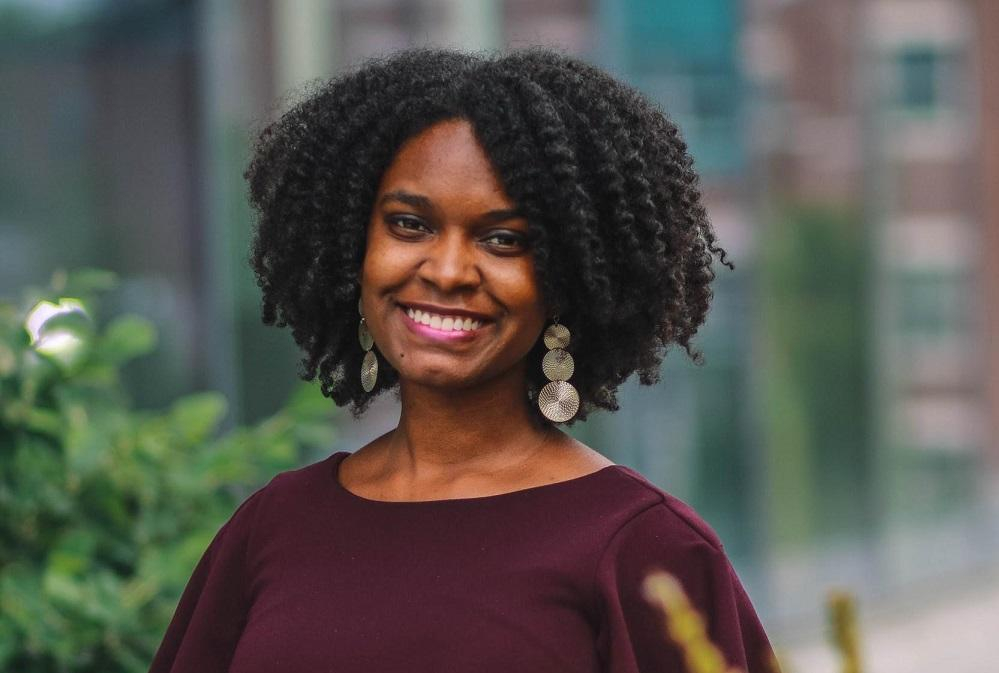How #BlackIslamSyllabus is Enhancing Islamic Studies – Talking with Dr. Kayla Wheeler
Community
|
Jun 15, 2020
|
6 MIN READ

Editor's Note: We've been featuring dynamic Muslim women on the blog for awhile, and we are stepping it up with our summer series dedicated to ChangeMakers, women who are living boldly and working to affect change in a myriad of ways – big and small – through their work as community organizers, artists, scientists, activists, educators, health professionals, care givers and more. We hope you are inspired by them to be the change you are searching for in your community!
By Layla Abdullah-Poulos
American Muslims comprise some of the most diverse religious experiences in the nation’s faith culture. Constant over-generalizations and stereotypes about American Muslims contribute to misconceptions about who we are, how long we have been here and our influences historically and across social backgrounds. Although Black Muslims make up a large segment of the American Muslim population, with extensive histories and distinctive heritages in the U.S., their voices and contributions (social, scholarly and cultural) that stabilized Islam as an American faith continue to be undervalued and ignored.
Many people inside and outside of American Muslim culture can benefit from developing a deeper appreciation of the complex Black Muslim experience, especially in how Black Muslims resist attempts to confine representation within parameters created by those seeking to pigeonhole us. Assistant professor Dr. Kayla Renée Wheeler at Grand Valley State University in Allendale, MI curates the #BlackIslamSyllabus, a dynamic compilation of historical, social and cultural sources serving as resources to deepen the study of Islam.
“My primary motivation was to show Black Muslims how diverse the Black Muslim experience is,” Dr. Wheeler explains to Haute Hijab. “ Secondly, it was to help address the absence of Black Muslims from classrooms.”
So often, at least in the United States, Black Islam (referring to specific interpretive stances about Islam with regards to various subject matters) and Black Muslims are left out of the classroom. When they are discussed, it’s usually limited to Bilal (RA) or Malcolm X, making it appear that Black Islam exists only in the distant past or contemporary times and can only be viewed from a man’s point of view,” Dr. Wheeler says. “I wanted to encourage professors, journalists, and students to take a broader approach to understand Black Muslims and their contributions to Islam.”

Dr. Kaylee Wheeler
The Challenges of Developing Robust Syllabus Content
Archiving research is no easy feat. Dr. Wheeler spent years and continues to gather resources. She shares with Haute Hijab some of the obstacles she encounters while collecting a massive amount of works:
“The biggest challenge for me is keeping up with all the latest work on Black Islam, both inside and outside of academia.” Dr. Wheeler calls the #BlackIslamSyllabus a living document that requires adding more contributions and perspectives continually. “Every day, new articles and books are published or a musician releases a new album. I try to update every couple of months.
“Also, my expertise is Islam in the Americas; so much of the earliest versions of the syllabus leaned towards the U.S. and Canada. I have worked really hard to be as geographically diverse as possible, but it still leans a bit towards the U.S. I hope other people will fill in the gaps and create their own syllabi.”
The #BlackIslamSyllabus has more than 38 pages with multiple categories holding a range of titles and links. “I have lost count of how many there are,” says Dr. Wheeler. “My favorite sections are ‘Diasporic Linkages,’ ‘Black Muslim Thought’ and ‘Constructions of Race and Anti-Blackness.’ The syllabus also has a list of hashtags, zines and podcasts. I plan on adding a section on COVID-19, because many Black Muslim leaders, like Margari Hill and Kameelah Rashad, are doing important work that needs to be recognized and documented.”
Dr. Wheeler says she strives for inclusion while compiling the syllabus. “I took the broadest definition of ‘Muslim’ and ‘Islam’ as possible, so there is representation from various perspectives including, but not limited to, Sunnis, Shi’a, Ahmadiyya, the Nation of Islam, Dar ul-Islam and the Imam W. Deen Mohammed community. As an Islamic Studies scholar, I think it is important for me not to [arbitrate] people’s self-understanding or religious identities. I included as many groups who identify as Muslim, as well as those who are identified as Muslim, like the Nation of Gods and Earths.
“As someone whose religious beliefs are often viewed as ‘unorthodox,’ I wanted to create a document where I felt represented,” she says. “There are sources about converts/reverts, Muslims with syncretic religious practices, and ‘cultural Muslims.’ Muslims have always been theologically and culturally diverse, and I wanted that represented.”
Dr. Wheeler also says in compiling the syllabus, it was important for her to consider diversity of gender, sexual orientation, age and ethnicity “ to challenge the single narrative approach to how Islam is depicted in the media and in scholarship. Women, members of the LGBT community and young people are some of our most important teachers, but they often go unrecognized in our communities.”

She also expresses a critical need for the diverse types of contributions to the syllabus as well. “It is important to have a broad definition of ‘text.’ In addition to having written work by non-academics, the syllabus includes a list of movies, television shows and photography. I wanted to challenge the narrow understanding of knowledge production that often limits scholarship to professors. People outside academia produce some of the best work on Black Islam.”
The Black Islam syllabus affords a universal resource for all Muslims: “I hope the syllabus helps Black Muslims make deep connections not only [with] their own local community but other Black Muslim cultures and communities,” says Dr. Wheeler. “It is important to celebrate our diversity as well as our commonalities. [For] non-Black Muslims, [the syllabus] shows that there is no excuse not to include Black Muslims in their syllabus, organizational boards or scripts. Black Muslims’ influence [in the United States] is undeniable and dates back to the 610s.”
Support from Academia
Several colleges and universities have used the Black Islam syllabus in their course teachings. Says Dr.Wheeler, "It has been used by a professor at University of Ottawa whose students were interested in taking a more expansive approach to anti-Muslim sentiment; at UNC-Charlotte for a class on Islamophobia and the media; Wake Forest University [and] Stanford University."
She has received positive feedback thus far, with academics telling her that "it has been really helpful for non-specialists and people who are Islamic Studies scholars but do not usually focus on Black people or race. [Also] that it helps to push back against Arab and South Asian centrism that is dominant in Islamic Studies. There are also professors that who do not use the syllabus for their own classes, but share it with their students who are interested in doing their own exploration, which is why it was important for me to include a range of texts and different perspectives."
Dr. Wheeler also received the Black Muslim Psychology's Trailblazer award for her research and work on the #BlackIslamSyllabus.
There are several ways that Muslim and non-Muslim academics can support the syllabus. “Academics can provide more recommendations for other sources to add to the syllabus. Written sources must be in English, but audio and visual sources can be in any language. They can donate to me and help transform the syllabus into a website, which will include a more accessible guide to the sources, a list of Black scholars of Islam, book reviews and video interviews with experts of Black Islam. The money will go towards paying writers, a video editor, interview equipment, and to compensate me for my labor.
“Finally, they can share. After nearly five years since starting the syllabus, it still brings me so much joy to know that people find it useful.”
More about Dr. Kayla Wheeler
Kayla Renée Wheeler is an incoming Assistant Professor of Critical Ethnic Studies at Xavier University in Cincinnati, Ohio. She earned her Ph.D. in Religious Studies from the University of Iowa in 2017. Currently, she is writing a book on contemporary Black Muslim fashion in the United States. The book explores how, for Black Muslim women, fashion acts a site of intra-religious and intra-racial dialogue over what it means to be Black, Muslim, and woman in the United States. She is the author of Mapping Malcolm’s Boston: Exploring the City that Made Malcolm X, which traces Malcolm X’s life in Boston from 1940 to 1953.
Subscribe to be the first to know about new product releases, styling ideas and more.
What products are you interested in?

